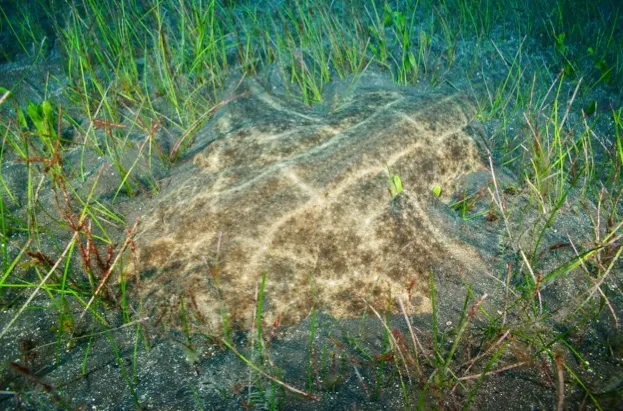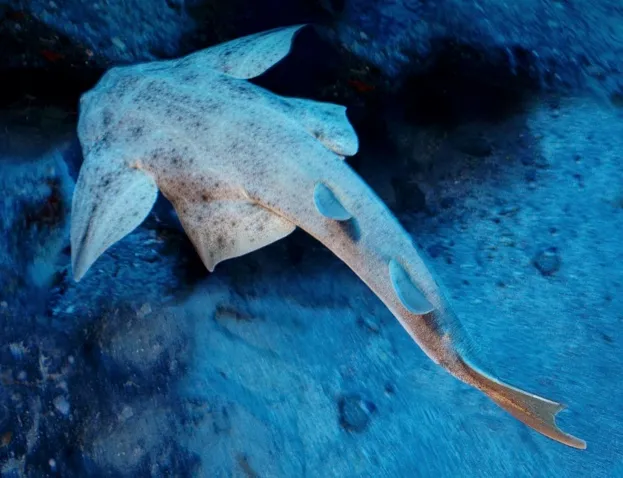Conservationists are looking for volunteers to assist with a new project launched this week which aims to collect data on angelsharks around the Welsh coast.
The project is led by the Zoological Society of London (ZSL) and Natural Resources Wales (NRW) and aims to shine a spotlight on one of the world's rarest sharks.
"We have an exciting opportunity to understand and improve the status of angelsharks in Wales, which is potentially one of the last strongholds for this amazing shark," says Joanna Barker, marine and freshwater project manager at ZSL.
"Our approach of combining conservation and social science is a method that we hope will provide benefits to both the population of angelsharks, but also to local communities we're working with that rely on the ocean for their livelihood".
The angel shark Squatina squatina - also known as a monkfish or angel fish - has suffered from diminishing numbers for the past 50 years. It is listed as Critically Endangered on the IUCN Red List, but is locally extinct in the North Sea and areas of the northern Mediterranean Sea.
Conservation efforts for the limited areas where angelsharks remain is now essential to prevent a worldwide extinction of the species.
Angelsharks are usually found on the seabed, searching for molluscs and small fish to eat. They have fins that resemble wings, as well as a flattened body, meaning they are commonly mistaken for rays.

In Wales, there have been increased sightings of angelsharks reported, which has given hope for this species.
Lesley Griffiths, the Welsh Assembly's cabinet secretary for energy, planning and rural affairs says, "I am delighted to be able to support this project, which brings together our coastal communities, fishers, scientists, conservation groups and the Government to work collaboratively to provide much needed data on this critically endangered species. Data which will improve our understanding of the species ecology and distribution, so we can better conserve the species in our waters for future generations."

ZSL, NRW and other organisations in the partnership will be working with volunteer divers in 'Dive for Angels' surveys (18-19 August and 22-23 September).
Any additional sightings can also be shared with the Angel Shark Conservation Network.
The research will also collect historical articles on angelsharks and those over the age of 60 - with memories of angelsharks - will be interviewed.